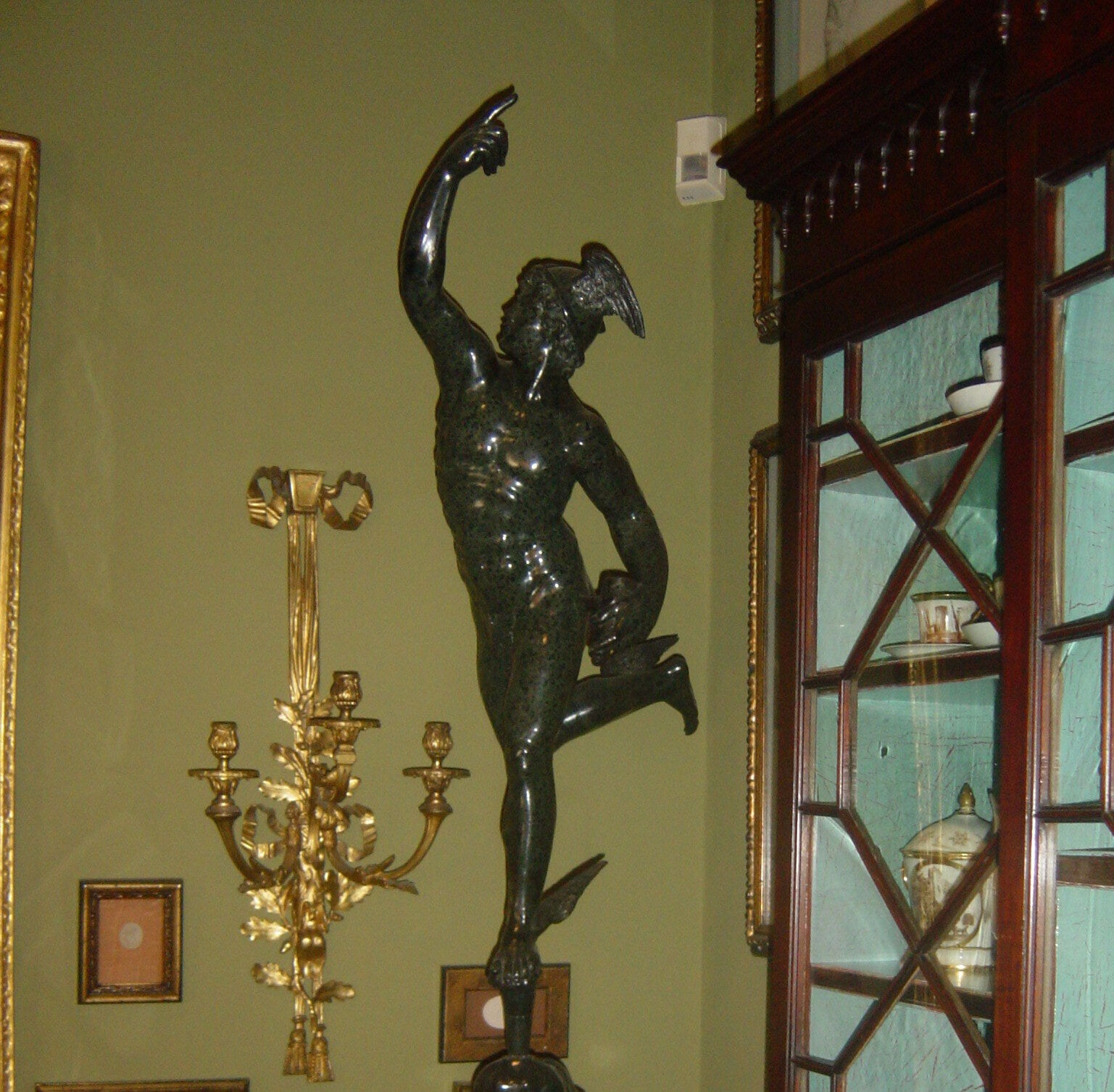HERMES/MERCURY

HERMES/MERCURY
By Anita Simon
Hermes (in Greek mythology), or Mercury (in Roman mythology), was the son of Zeus and Maia. Maia was one of the seven Pleiades, a group of stars identified by the Greeks.
Hermes was liked by, and helpful to, both gods and men. As the messenger of the gods, he was usually represented with wings at his ankles and sometimes with a winged hat. He was swift like the wind, quickly snatching up objects, so that he was also claimed by thieves. An apocryphal story about the mischievous Hermes is that, on the same day that he was born, he stole and hid Apollo’s cattle and promptly hopped back and hid in his cradle. When Apollo accused him of the theft, he denied it with such a cheeky wink that all the gods laughed.
Zeus made him return the cattle and, in addition, Hermes gave Apollo the Lyre which he had just invented by forming it from the shell of a tortoise. In return, Apollo appointed Hermes ‘celestial herdsman’, and gave him the caduceus, a winged whip or wand entwined with snakes. Arcadian shepherds saw Hermes as the protector of their flocks and huts.
He also guided men on their voyages, in their business ventures and affairs, and with his gifts of eloquence and invention. His own ingenuity aided many humans, such as Perseus, Orpheus and Odysseus, but he helped many of the gods as well. For example, he was able to deliver safely Zeus’ small son - and therefore his own stepbrother, Dionysus, to his aunt Io, despite Hera’s anger at the child’s birth.
Hermes brought good luck in all kinds of enterprises and finally, as Hermes Psychopompus, he conducted the souls of the dead to Hades, their final dwelling place.
This article was first published in fairhall , Issue 1, December 2010, pp 11.
Reference
Larousse Encyclopaedia of Mythology, Paul Hamlyn, 1964, pp.133–137
Journals
About US
Explore
Contact
VISIT
See our VISIT page for hours and directions
BY PHONE
+61 3 9416 2515
BY POST
PO Box 79, East Melbourne VIC 8002
ONLINE
General enquiries
Membership enquiries
Shop
Donation enquiries
Subscribe to E-Newsletter



